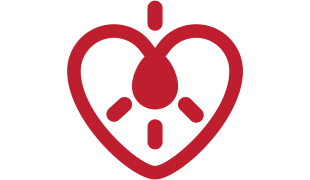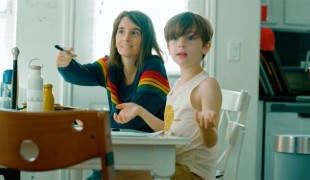- 6953
- 498
- 9
- 9
- 0
- Help Ukraine
About the solution
“As a mother of three young boys, time is not something I have in abundance. My youngest son has a neurological condition that prevents him from being able to move voluntarily; meaning he is 100% dependant on others. Due to this, dressing and undressing him is an extremely difficult task, especially when it comes to putting on t-shirts, jumpers and jackets. Looking for solutions already available, it was clear there wasn’t anything very appealing or trendy for older children or teenagers, nor any products that would satisfy or solve our littlest man’s dressing challenge.
It was then that I decided to start CAPR-Style, to produce a complete line of clothing, a whole wardrobe that solves the daily challenges of dressing disabled children, young and old, bringing them fashion and style, and with the carers needs discretely incorporated into the items”, the mother explained.
CAPR-Style is complete line of clothing that caters exclusively for children with special needs and solves the daily challenges brought by dressing children with disabilities and physical restrictions. Some of the garments in the CAPR-Style range present features such as flaps in the fabric in order to dissimulate the gap for medical necessities such as G-tubes, IV tubes, catheters and colostomy bags. They offer adaptive clothing that is discreet, such as a jumper that opens and closes with Velcro at the back as well as a versatile jacket with openings both at the back and front that also comes with a detachable colar.
Each CAPR-Style garment is handmade and products can be customized and adjusted to fit the individual’s personal needs. The garments are designed specifically to adapt to the toileting and changing needs of people with severe disabilities, such as motor neuron disease, spinal injury, cerebral palsy and also for wheelchair users and those with incontinence problems.
More info: http://capr-style.com/
Adapted from: http://bit.ly/2dOWcNY
What about you, do you have any solutions? Please share them with the Patient Innovation community!
This solution shall not include mention to the use of drugs, chemicals or biologicals (including food); invasive devices; offensive, commercial or inherently dangerous content. This solution was not medically validated. Proceed with caution! If you have any doubts, please consult with a health professional.
DISCLAIMER: This story was written by someone who is not the author of the solution, therefore please be advised that, although it was written with the utmost respect for the innovation and the innovator, there can be some incorrect statements. If you find any errors please contact the patient Innovation team via info@patient-innovation.com
-
-
590
-
0
-
7842

Slacks with zippers on both sides for patients who have to stand up in public
CAREGIVING
(SELF)-CARE: DRESSING: Dressing independently.
Amyotrophic Lateral Sclerosis
Strategy/Tip
Body-Worn solutions (Clothing, accessories, shoes, sensors...)
Tremors
Muscle cramps or spasms
Stiffness or rigidity (difficulty moving)
Muscle weakness
Trouble with fine motor skills (e.g., writing, buttoning clothes)
Sleep disturbances
Numbness or tingling in the extremities
Restoring mobility
Managing pain
Promoting self-management
Managing Neurological Disorders
Promoting inclusivity and social integration
Preventing (Vaccination, Protection, Falls, Research/Mapping)
Caregiving Support
General and Family Medicine
Medical Genetics
Medical Oncology
Neurology
Orthopedics
Physical Medicine and Rehabilitation
Rheumatology
United States
-
-
-
312
-
0
-
3452

Mother Eileen Lamb implemented a series of voice assistant-driven strategies to support her raising her two autistic children.
COMMUNICATION: Communicating, whether by speaking, listening, or other means
CAREGIVING
Social interaction
(SELF)-CARE: GROOMING: Personal grooming, such as combing hair or shaving
Autism
Strategy/Tip
AI algorithm
Promoting self-management
Managing Neurological Disorders
Promoting inclusivity and social integration
Improving Speech and Communication
To improve Treatment/Therapy
Preventing (Vaccination, Protection, Falls, Research/Mapping)
Caregiving Support
Child and Adolescent Psychiatry
General and Family Medicine
Neurology
Pediatrics
United States
-
-
-
281
-
0
-
3388

Mom creates clothing line for autistics
(SELF)-CARE: DRESSING: Dressing independently.
Autism
Body-Worn solutions (Clothing, accessories, shoes, sensors...)
Anxiety
Difficulty concentrating or making decisions
Irritability or anger outbursts
Restlessness or feeling slowed down
Panic attacks
Difficulty controlling impulses
Racing thoughts
Feelings of guilt or worthlessness
Obsessive thoughts or compulsive behaviors
Hallucinations (perceiving things that aren't there)
Changes in appetite or weight
Promoting self-management
Managing Neurological Disorders
Promoting inclusivity and social integration
To improve Treatment/Therapy
Preventing (Vaccination, Protection, Falls, Research/Mapping)
Caregiving Support
Child and Adolescent Psychiatry
General and Family Medicine
Neurology
Pediatrics
United States
-
 en
en